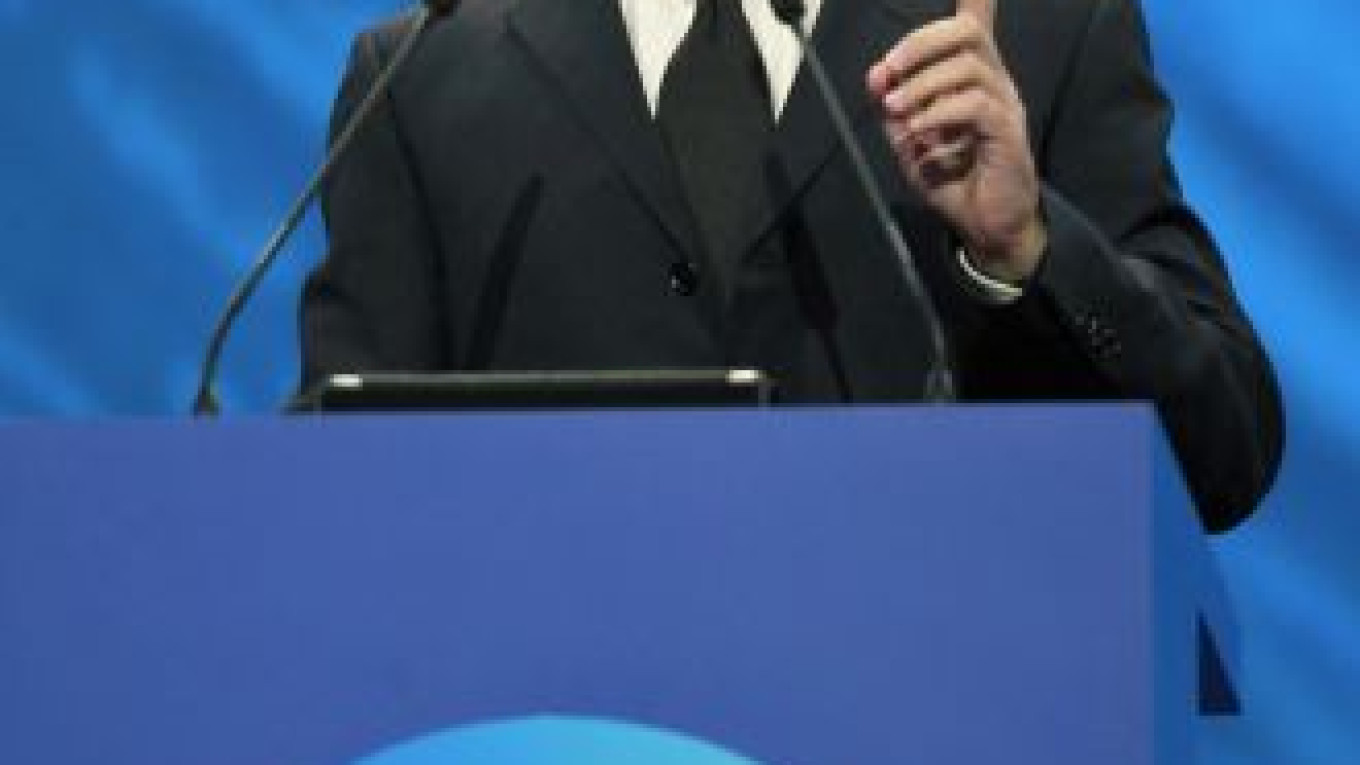YAROSLAVL — President Dmitry Medvedev said Thursday that ethnic tension was rising in Russia but cracking down too hard would undermine stability.
"We must preserve the integrity of the country, otherwise we shall not have a country at all," Medvedev said in a speech at the Kremlin-backed Global Policy Forum.
He said "separatism and terrorism" had not been defeated, a reference to North Caucasus-based insurgency, but added that calls to tighten the screws or limit human rights to deal with poverty or extremism would achieve nothing.
He said he wanted to live in a "modern, democratic state" and warned against silencing criticism, remarks clearly designed to appeal to liberal political and business leaders in attendance.
By raising concerns about ethnic tensions and the gulf between rich and poor, he touched on issues that are likely to figure in the State Duma elections on Dec. 4, but did not mention whether he intended to run for re-election.
Despite a sharp fall in poverty since the Soviet collapse in 1991, when about a third of Russians lived in poverty, Medvedev said the proportion had risen to 15 percent this year from 12.8 percent in 2010.
"The top 10 percent of the population receive 15 times as much as the poorest 10 percent," Medvedev said.
He repeated calls for reform but, seeking to temper criticism by more conservative forces, signaled that he would not endorse change that was too rapid.
"We need to develop but do this in an harmonious and gradual way," he said.
• • •
Syrian President Bashar Assad could hold on to power despite a popular revolt, and Moscow hopes to build bridges between his government and the opposition, the Kremlin's envoy to the region said Thursday.
"The chances for a political settlement are still open," Mikhail Margelov told reporters at the Global Policy Forum. "We are trying to bring them closer together, the opposition and the government. We still hope that it's possible to establish a kind of docking mechanism between them."
"Bashar al-Assad is a secular leader, he is young, he is well-educated, and he is broad-minded," said Margelov, who heads the Federation Council's International Affairs Committee.
Russia, which has a naval maintenance facility in Syria and arms contracts with Damascus, has condemned the use of force against protesters in Syria but has blamed opponents of Assad for some of the violence and stopped short of backing Western calls for him to quit.
Margelov made clear that Russia would not be changing its strategy on Syria because of any concerns that its position, trying to build bridges between the government and opposition, would affect its business interests if Assad fell.
A Message from The Moscow Times:
Dear readers,
We are facing unprecedented challenges. Russia's Prosecutor General's Office has designated The Moscow Times as an "undesirable" organization, criminalizing our work and putting our staff at risk of prosecution. This follows our earlier unjust labeling as a "foreign agent."
These actions are direct attempts to silence independent journalism in Russia. The authorities claim our work "discredits the decisions of the Russian leadership." We see things differently: we strive to provide accurate, unbiased reporting on Russia.
We, the journalists of The Moscow Times, refuse to be silenced. But to continue our work, we need your help.
Your support, no matter how small, makes a world of difference. If you can, please support us monthly starting from just $2. It's quick to set up, and every contribution makes a significant impact.
By supporting The Moscow Times, you're defending open, independent journalism in the face of repression. Thank you for standing with us.
Remind me later.


